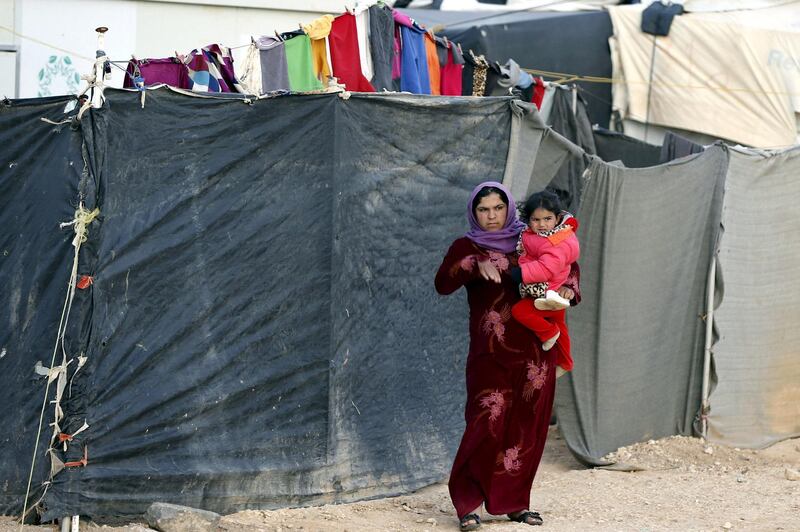Syrian refugees and low-income Jordanians will soon be empowered through mobile banking thanks to a new grant initiative, led by the Bill & Melinda Gates Foundation.
Humanitarian leaders from the foundation have set up a partnership with the Central Bank of Jordan, entitled Mobile Money for Resilience (MM4R), as the first of its kind in the Middle East.
"The motivation was to try and understand ways the foundation, beyond financial resources, could land some expertise to address issues confronting Syrians who are now living in Jordan," said Joe Cerrell, managing director of Global Policy and Advocacy at the foundation.
"We have a small team but one of the things they looked at, when trying to understand better what some of those issues they confront are, include access to financial services. So this new effort was launched as a way to provide, not just Syrian refugees, but low-income Jordanians, better access to financial services."
Launched with a $3 million contribution from the Gates Foundation, MM4R hopes to raise up to $11m over five years to scale up mobile money services in government and humanitarian agency cash transfer programmes. The initiative comes at a time when the world is witnessing the highest levels of displacement on record, with an unprecedented 65.6 million people around the world forced from their homes.
"The hope is to try to get as many as possible [on the scheme], over the next few months," Mr Cerrell said. "It's consistent with a larger strategy that Jordan has launched, as part of its 2018-20 National Financial Inclusion Strategy, which has this large goal of empowering underserved segments of the population, so we hope this will contribute."
The team is keen that more funding will come from other donors to address these issues within Jordan. "Hopefully it's a model that other countries, with similar goals of supporting some of the refugees that are now migrated into Jordan, will see as an attractive opportunity to help," Mr Cerrell said. "The project is the first of its kind to be held in a central bank, not only supporting government cash transfer programmes but also humanitarian agency cash transfer programmes. It will make that system more sophisticated."
_______________
Read more:
Jordan's Arab Bank says Q3 net profit falls 3.9% as net income interest declines
Middle East Islamic banking to grow by 5% annually, says governor of Central Bank of Bahrain
_______________
According to the United Nations High Commission for Refugees, more than 650,000 refugees have fled Syria to Jordan, of whom 80 per cent are living outside camps, within urban centres across the country. A high percentage of those still lack access to financial services, including payment transfers, savings and credit. The linking of access to financial services, especially for women, is also a major barrier to financing for new enterprise.
“It’s difficult when you have a pretty distributed type of concentration of the population so it’s bringing some of those basic services that help displaced people have better access and provide some of those essential services,” Mr Cerrell said.
"Starting in a brand-new environment is very difficult, with no address nor credit history, to be able to get financial services. It's a really vital function to be able to go into a new situation."
The foundation has looked at the crisis as an opportunity. The target, based on the grant, is 178,000 people for three years, expanding to a million people if another $10m is raised from other donors.
"We cannot do it alone and we hope to have different donors who are able to complement our innovation and help Jordanians achieve their objectives," said Valerie Bemo, who leads the Gates Foundation's global humanitarian programme. "This will impact the whole region and help the poor to be able to have the capacity to be financially inclusive. We know that by giving them a financial identity, then we can get them to be part of society."






